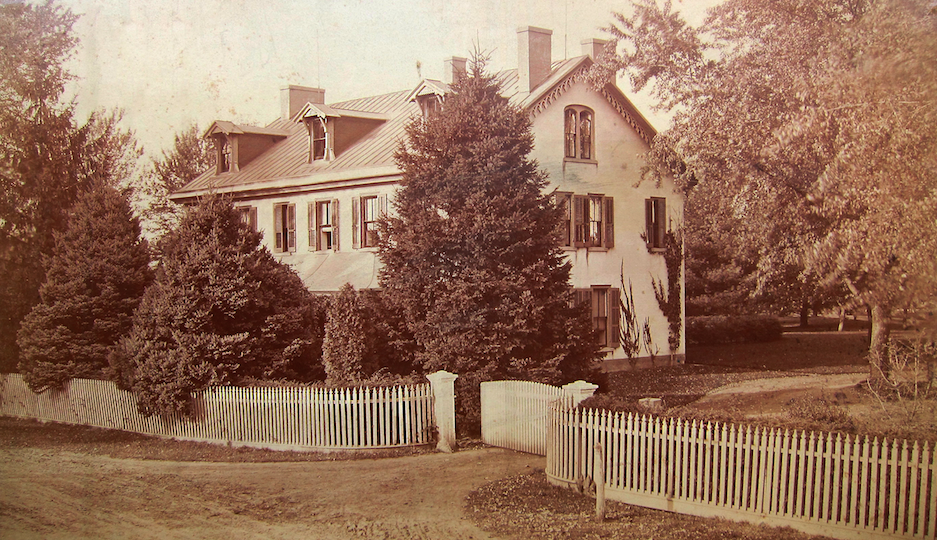
Regional Overview: The Sights of the City, Loosely Defined
Philadelphia,defined here as the Quaker region of three formerly Quaker states, contains an astonishing number of interesting places to visit. Three centuries of history leave their marks everywhere. Begin by understanding that William Penn was the largest private landholder in history, and he owned all of it.
Many neighboring residents may feel it is presumptuous to claim that Philadelphia's spirit extends over most of three states. Indeed many residents of even center city Philadelphia would resist a claim that Philadelphia is dominated by a Quaker heritage. But that is what will gradually emerge from this website. Perhaps it helps to state right out that at one time William Penn the Quaker owned the whole area. Furthermore, Penn was a dominant figure in the Quaker religion, playing a spiritual role rather like that of St. Paul in the early Christian Church, only lots richer and a friend of the King. Although the Penn proprietorship was extinguished by the Revolutionary War, it lasted in partial form from 1675 to 1787, during the period when Philadelphia was the largest and most prosperous city in the colonies. Even at the end, only a quarter of Penn's land had been sold off; the rest was essentially expropriated in a forced sale at fifteen cents per acre. Without arguing the fairness of this transaction, it amply illustrates how Penn and his co-religiounists could leave their imprint on such a vast area.
We present well over a thousand essays about Philadelphia, broadly defined. We must begin somewhere, and choose to start with brief glimpses appealing to newcomers and tourists. In later chapters there is time to take up some of Philadelphia's most interesting features in expanded detail. The Scots say many a mickle makes a muckle , so electronic linkages connect those tourist glimpses to "topics" of expanded detail. But the reader at any level must be warned this is a work in progress, containing gaps we mean to fill, and errors we hope to correct.
- Downtown
A discussion about downtown area in Philadelphia and connections from today with its historical past.
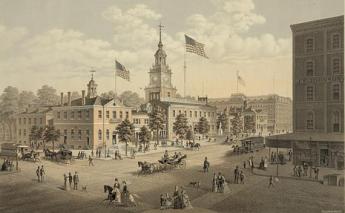
- Land Tour Around Delaware Bay
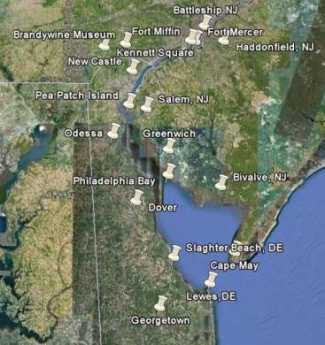 Start in Philadelphia, take two days to tour around Delaware Bay. Down the New Jersey side to Cape May, ferry over to Lewes, tour up to Dover and New Castle, visit Winterthur, Longwood Gardens, Brandywine Battlefield and art museum, then back to Philadelphia. Try it!
Start in Philadelphia, take two days to tour around Delaware Bay. Down the New Jersey side to Cape May, ferry over to Lewes, tour up to Dover and New Castle, visit Winterthur, Longwood Gardens, Brandywine Battlefield and art museum, then back to Philadelphia. Try it!
- Delaware (State of)
 Originally the "lower counties" of Pennsylvania, and thus one of three Quaker colonies founded by William Penn, Delaware has developed its own set of traditions and history.
Originally the "lower counties" of Pennsylvania, and thus one of three Quaker colonies founded by William Penn, Delaware has developed its own set of traditions and history.
- Montgomery and Bucks Counties The Philadelphia metropolitan region has five Pennsylvania counties, four New Jersey counties, one northern county in the state of Delaware. Here are the four Pennsylvania suburban ones.
- New Jersey (State of)
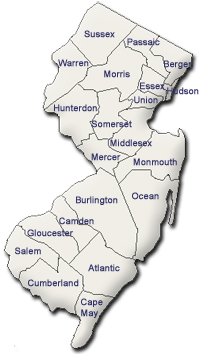 The Garden State really has two different states of mind. The motto is Liberty and Prosperity.
The Garden State really has two different states of mind. The motto is Liberty and Prosperity.
- Particular Sights to See:Center City Taxi drivers tell tourists that Center City is a "shining city on a hill". During the Industrial Era, the city almost urbanized out to the county line, and then retreated. Right now, the urban center is surrounded by a semi-deserted ring of former factories.
- Colonial Philadelphia (Pre- 1776)
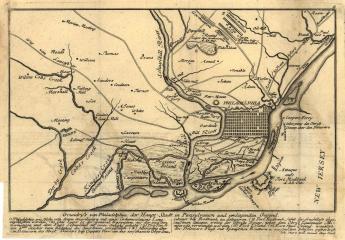 It's surprising to most Americans to learn the American Revolution was not the beginning, but almost half-way through the European settlement. And before the Revolution, there were thousands of years of settlement by non-European tribes. We know more about non-European settlers than we did fifty years ago, but records are still very poor or non-existent, and not likely to catch up very rapidly. History will begin in 1492 for a very long time. Long before that, it isn't history, it's anthropology.
It's surprising to most Americans to learn the American Revolution was not the beginning, but almost half-way through the European settlement. And before the Revolution, there were thousands of years of settlement by non-European tribes. We know more about non-European settlers than we did fifty years ago, but records are still very poor or non-existent, and not likely to catch up very rapidly. History will begin in 1492 for a very long time. Long before that, it isn't history, it's anthropology.
- Tourist Walk in Olde Philadelphia Colonial Philadelphia can be seen in a hard day's walk, if you stick to the center of town.
- Arch Street: from Sixth to Second When the large meeting house at Fourth and Arch was built, many Quakers moved their houses to the area. At that time, "North of Market" implied the Quaker region of town.
- Sixth and Walnut
over to Broad and Sansom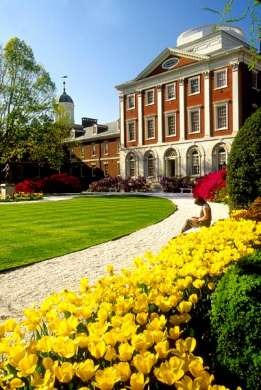 In 1751, the Pennsylvania Hospital at 8th and Spruce was 'way out in the country. Now it is in the center of a city, but the area still remains dominated by medical institutions.
In 1751, the Pennsylvania Hospital at 8th and Spruce was 'way out in the country. Now it is in the center of a city, but the area still remains dominated by medical institutions.
- Up Market Street
to Sixth and Walnut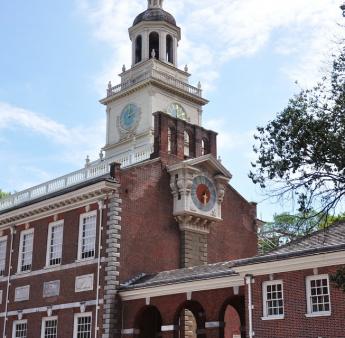 Millions of eye patients have been asked to read the passage from Franklin's autobiography, "I walked up Market Street, etc." which is commonly printed on eye-test cards. Here's your chance to do it.
Millions of eye patients have been asked to read the passage from Franklin's autobiography, "I walked up Market Street, etc." which is commonly printed on eye-test cards. Here's your chance to do it.
- Philadelphia's Middle Urban Ring Philadelphia grew rapidly for seventy years after the Civil War, then gradually lost population. Skyscrapers drain population upwards, suburbs beckon outwards. The result: a ring around center city, mixed prosperous and dilapidated. Future in doubt.
- West of Broad A collection of articles about the area west of Broad Street, Philadelphia, Pennsylvania.
- The Main Line Like all cities, Philadelphia is filling in and choking up with subdivisions and development, in all directions from the center. The last place to fill up is the Welsh Barony, a tip of which can be said to extend all the way in town to the Art Museum.
- Touring Philadelphia's Western Regions Philadelpia County had two hundred farms in 1950, but is now thickly settled in all directions. Western regions along the Schuylkill are still spread out somewhat; with many historic estates.
- North of Market The term once referred to the Quaker district along Arch Street, and then to a larger district that had its heyday after the Civil War, industrialized, declined, and is now our worst urban problem area.
- To Germantown, a Short Appreciation Seven miles from the heart of Philadelphia, Germantown was once a separate town, the cultural center of Germans in America. Revolutionary battles were fought here, it was briefly the capital of the United States, and it still has an outstanding collection of schools and colleges.
- The Park and Beyond: East Falls, Germantown, Mt. Airy and Chestnut Hill Fairmount Park is large enough to split the City from its suburbs, and is partly a playground, partly a museum. East Falls, Germantown and Chestnut Hill are almost a separate world on the far side of the park.
- Historical Motor Excursion North of Philadelphia The narrow waist of New Jersey was the upper border of William Penn's vast land holdings, and the outer edge of Quaker influence. In 1776-77, Lord Howe made this strip the main highway of his attempt to subjugate the Colonies.
- Sights to See: The Outer Ring There are many interesting places to visit in the exurban ring beyond Philadelphia, linked to the city by history rather than commerce.
- Haddonfield (all 26)(1 of1)volume 38
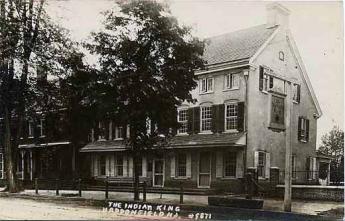 Haddonfield is a bit of a secret. It's Philadelphia's "Main Line, East"
Haddonfield is a bit of a secret. It's Philadelphia's "Main Line, East"
- Up the King's High Way New Jersey has a narrow waistline, with New York harbor at one end, and Delaware Bay on the other. Traffic and history travelled the Kings Highway along this path between New York and Philadelphia.
- Historical Preservation The 20% federal tax credit for historic preservation is said to have been the special pet of Senator Lugar of Indiana. Much of the recent transformation of Philadelphia's downtown is attributed to this incentive.
- City of Rivers and Rivulets Philadelphia has always been defined by the waters that surround it.
- Philadelphia's River Region
A concentration of articles around the rivers and wetland in and around Philadelphia, Pennsylvania.
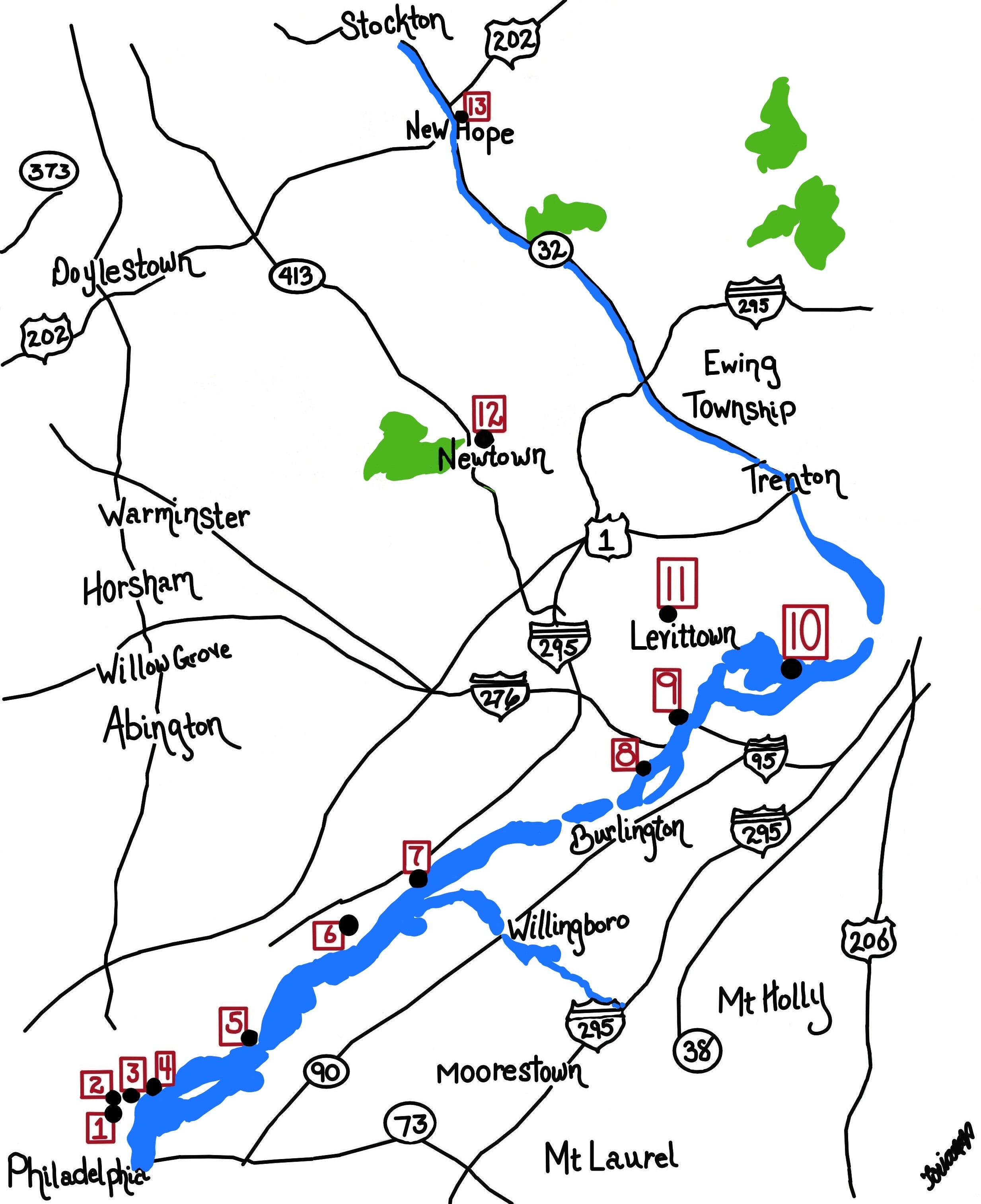
- Food and Drink in Philadelphia A flowing abundance of food sources made Philadelphia the capital of food and drink, right from earliest times.
- Conventions and Convention Centers When you have a big convention center, some circus is always coming to town. Philadelphia has always been a convention town, has had and still has lots of convention sites, and hopes to have more of the kind of famous convention we have had in the past.
- Architecture in Philadelphia
Originating in a limitless forest, wooden structures became a "Red City" of brick after a few fires. Then a succession of gifted architects shaped the city as Greek Revival, then French. Modern architecture now responds as much to population sociology as artistic genius. Take a look at the current "green building" movement.
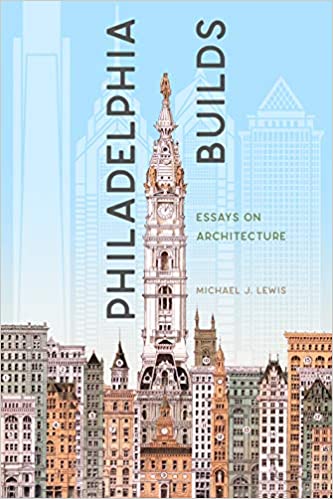
- Tourist Trips Around Philadelphia and the Quaker Colonies The states of Pennsylvania, Delaware, and southern New Jersey all belonged to William Penn the Quaker. He was the largest private landholder in American history. Using explicit directions, comprehensive touring of the Quaker Colonies takes seven full days. Local residents would need a couple dozen one-day trips to get up to speed.